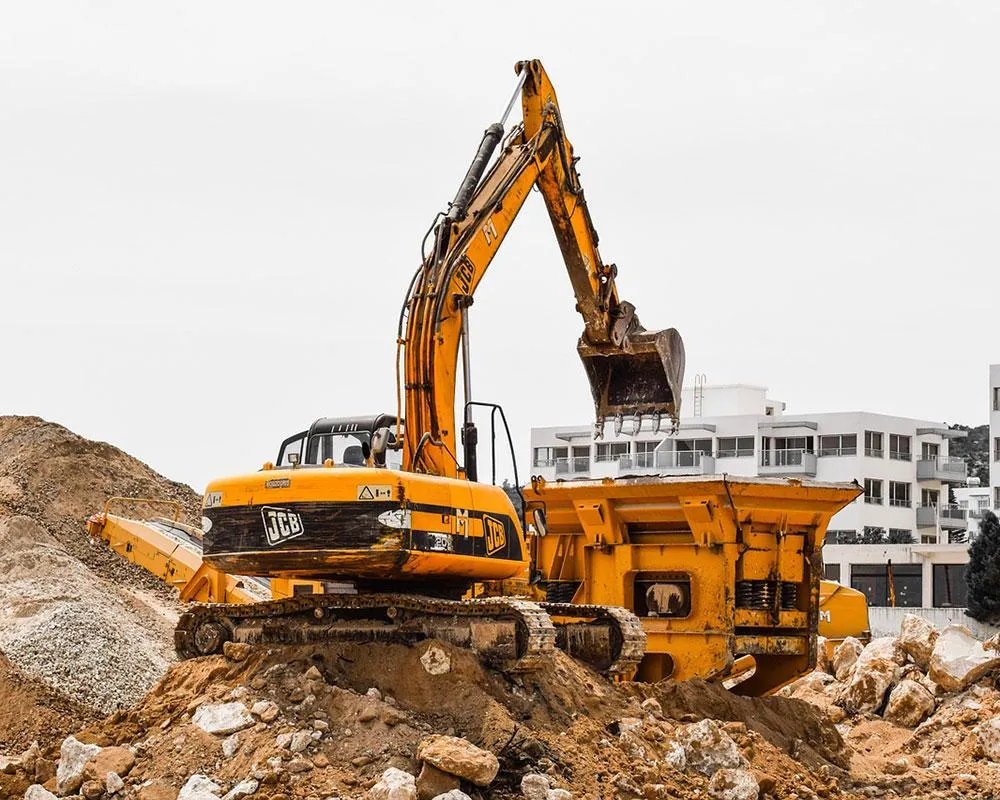
Serving Texas Counties: Harris, Montgomery, Waller, Fort Bend, Austin, Grimes and Brazoria
Commercial Excavation Company Near Harris County, Texas
Brown Aerobic Septic Specialists is Committed to superior quality and results!

AVOID COSTLY MISTAKES:
Do NOT hire an excavating contractor without first reading our free guide:
The ULTIMATE Excavation & Septic "Success Guide."

What a Commercial Excavation Company Near Harris County, Texas Really Does
Commercial excavation is the foundation of every successful build in Harris County, Texas. Before steel rises or concrete is poured, the ground must be evaluated, shaped, and stabilized so structures perform for decades. A qualified crew handles clearing, mass earthwork, precision grading, pad construction, and trenching for storm, water, sewer, electrical, and telecom. They coordinate with surveyors, geotechnical engineers, and inspectors, manage traffic control and stormwater compliance, and maintain jobsite safety so downstream trades can work efficiently.
How Can We Help?


The Core Benefits of Using a Commercial Excavation Company Near Harris County
First, you reduce risk. Harris County soils range from expansive clays to sandy lenses, each reacting differently to moisture and load. Experienced operators read soil reports, adjust methods, and prevent settlement, heave, or slab cracking. Second, you gain speed. Smart phasing, haul-route planning, and balanced cut-and-fill reduce idle time and excess trucking. Third, you improve cost predictability. Clear quantities, unit pricing, and spoil strategies keep budgets honest. Finally, you strengthen compliance and documentation with density tests, survey shots, and daily logs that satisfy lenders and inspectors.
Specific Advantages for Harris County, Texas Projects
Flood resilience is non-negotiable here. The right partner executes grades, swales, and detention that perform in real storms, not just on paper. GPS grade control holds tight tolerances so water flows where it should. Subsurface congestion is another factor: in busy corridors, utilities and easements can be dense. Professional daylighting, potholing, and as-built mapping prevent costly conflicts. Because schedules are compressed, best-in-class crews mobilize quickly, coordinate deliveries, and keep the site accessible for neighboring businesses.
The Business Benefits of Hiring a Commercial Excavation Company Near Harris County
A proactive excavation partner helps you make better decisions earlier. Expect value engineering like balancing import and export, choosing geogrid to bridge soft zones, or using lime or cement treatment when lab data calls for it. Better subgrade yields smoother paving, fewer warranty calls, and a longer life cycle for your asset. Safety improves, too: site-specific plans, daily tailgates, equipment inspections, and clean haul roads reduce incidents and protect your reputation. Strong reporting—daily logs, photos, drone shots, and look-ahead schedules—keeps stakeholders aligned.
What Services Are Typically Included
Look for a scope that covers vegetation removal, stripping and stockpiling, mass excavation, onsite balancing, precision grading, pad construction, utility trenching and backfill, storm drainage and structures, culverts, drive approaches, construction entrances, temporary and permanent erosion control, and restoration. Add testing and records—proctor curves, field density tests, moisture readings, and stormwater logs—to verify work meets spec. If wetlands, contamination, or unsuitable soils are present, expect environmental controls and proper disposal routes to be spelled out.
See Our Excavation & Septic Services

✔️ Commercial Excavation
✔️ Residential Excavation
✔️ Septic inspections
✔️ Septic system pumping
✔️ Septic tanks - aerobic systems
✔️ Septic installation
✔️ Drain field replacement
✔️ Sewer repairs
Quality Services Launched FAST!

✔️ Camera Inspections
✔️ Pipe Jetting and thawing
✔️ Trenching
✔️ Grease trap pumping
✔️ Septic repairs
✔️ Septic maintenance contracts
What Are You Waiting For?
The Step-by-Step Process for Hiring a Commercial Excavation Company Near Harris County, Texas
Step one is discovery and a site walk to align on access, phasing, and constraints. Step two is a preliminary takeoff and budget that identifies cost drivers such as undercut, treatment, and export. Step three is value engineering to evaluate alternatives that preserve performance while reducing spend. Step four is a formal proposal that firms quantify where possible and uses transparent unit rates where unknowns remain. Step five is the contract and preconstruction meeting, covering safety plans, QC standards, haul routes, testing frequency, and communication cadence. Step six is mobilization and layout, including utility locates, benchmarks, and initial erosion controls. Step seven is execution—clearing, stripping, mass excavation, treatment if needed, trenching, backfill, and final grading. Step eight is closeout with as-builts, test results, and punch-list items handled promptly.
Preconstruction: How to Start the Hiring Process
Begin with clarity. Share civil drawings, a current survey, soils reports, and your target in-service date. Ask each Commercial Excavation Company Near Harris County, Texas for a written scope, assumptions, alternates, unit pricing, allowances, and a preliminary schedule with milestones. Request sample daily reports, change orders, and pay apps so you know what communication will look like. Confirm bonding capacity and insurance that satisfy lender requirements. Check whether traffic control plans meet local and TxDOT standards, and ensure stormwater practices align with your permit.
How Great Excavation Saves Money Over the Life of the Property
Every inch matters. Tighter tolerances mean less remedial grinding of concrete or asphalt, fewer birdbaths, and better ADA compliance at entrances. Well-compacted trenches prevent future sinkholes and utility failures. Accurate drainage protects parking lots, loading docks, and landscaping, lowering long-term maintenance. The payoff shows up in smoother inspections, faster tenant buildouts, and longer resurfacing cycles. Over the years, those gains compound into real dollars and a more reliable asset.
Budgeting Tips for Harris County Owners and Builders
Pair unit prices with realistic quantities and insist on alternatives for the known unknowns—undercut, lime treatment, rock excavation, and export. Ask how many trucks will be dedicated to your project and the hourly rate for additional hauling if weather shifts the plan. Clarify spoil handling early: on-site balance, export sites, and tipping fees. Require weekly cost-to-complete updates so you can adjust contingencies before surprises become delays. Keep a weather allowance in your schedule and budget; it is cheaper to plan for storms than to recover from them without resources.
Scheduling and Communication Expectations
A dependable Commercial Excavation Company Near Harris County communicates daily. Expect look-ahead schedules, clear maps, and weather-aware sequencing that protects the critical path. When utilities surprise you, you will see options—reroute, encase, or adjust elevations—with costs and schedule impacts spelled out. Good documentation protects everyone and preserves momentum. If a storm rolls through, you should receive a revised sequence the same day and a plan to recover time without sacrificing quality.
What Quality Looks Like on a Finished Pad
You want uniform density proven by tests, smooth transitions, and positive drainage confirmed by survey shots. Trenches are compacted in lifts with recorded moisture and density. Stockpiles are shaped and stabilized, inlets protected, and silt fence intact. Access roads are firm and clean. When those elements are present, downstream trades move faster, safety improves, and your schedule holds. That is the practical mark of a Commercial Excavation Company Near Harris County that treats the site like it will own the finished product.
Choosing the Right Partner in Texas
Selecting a Commercial Excavation Company Near Harris County is ultimately about trust, proof, and fit. Review recent projects similar in size and soil conditions to yours, and ask to see production rates, weather recovery plans, and testing records. Meet the superintendent who will live on your site, not just the estimator. Confirm that equipment, trucks, and operators are dedicated to your schedule, and that backup machines are available if something breaks. Clear communication, visible planning, and documented quality give you confidence from day one. Choose experience, clarity, and accountability for a successful build.
Hours: Mon-Fri 8AM-4.30PM
Extended hours by appointment only.
Address: 17618 South drive Cypress Texas 77433
All rights reserved | Client Support Area